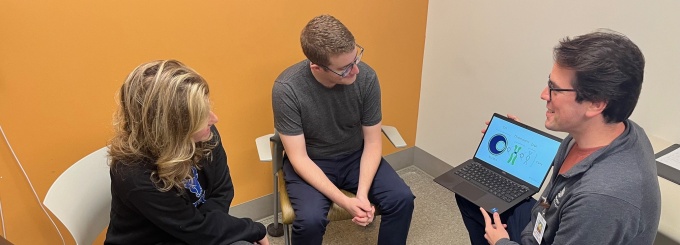About Genetic Counseling

What is Genetic Counseling?
The process of helping people understand and adapt to the medical, psychological and familial implications of genetic contributions to disease. This process integrates the following:
- Interpretation of family and medical histories to assess the chance of disease occurrence or recurrence.
- Education about inheritance, testing, management, prevention, resources and research.
- Counseling to promote informed choices and adaptation to the risk or condition.
National Society of Genetic Counselors' Definition Task Force, Resta, R., Biesecker, B. B., Bennett, R. L., Blum, S., Hahn, S. E., Strecker, M. N., & Williams, J. L. (2006). A new definition of Genetic Counseling: National Society of Genetic Counselors' Task Force report. Journal of genetic counseling, 15(2), 77–83. https://doi.org/10.1007/s10897-005-9014-3
Who are Genetic Counselors?
Health professionals with advanced training in medical genetics and psychosocial counseling who guide patients seeking more information about how inherited conditions might affect them or their families. Some of the duties they perform include:
- interpreting genetic test results based on personal and family histories and connecting patients to resources and referrals
- meeting with individuals or families in-person or via telehealth
- providing support and education for non-genetics providers and the community
- specializing in prenatal, pediatric, oncology, neurology, ophthalmology, psychiatry and many other areas
- having roles outside of seeing patients, like research, education and industry